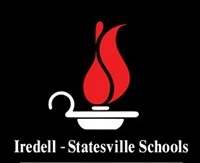
BY KARISSA MILLER
One Iredell-Statesville school board member expressed concerns about the way the board approves School Improvement Plans.
During Monday’s school board meeting, board member Mike Kubiniec made a motion to have each principal give a 15-minute presentation on their School Improvement Plan during a separate meeting rather than hear from district administrators. The motion received a second, but failed to garner the support of the majority of board members.
“I feel the principal’s job is the hardest in the school district. They are the commanding officer for their school. They are responsible for delivering academic results for their school. And according to state law, we have general overview and governance of the school district, I believe we should be briefed on these plans,” Kubiniec said.
“They are full of acronyms. They are long spreadsheets and it’s tough for us to figure out what’s important when we look at these documents,” he added.
He said it would be appropriate to do outside of the regular meeting.
“The board should be able to know of the school’s progress. I think we need to hold the superintendent accountable for that progress,” Kubiniec said.
Vice Chair Cindy Haynes expressed concerns about doing that.
Haynes told fellow board members that I-SS Chief Secondary Academic Officer Kelly Cooper and I-SS Chief Elementary Academic Officer Diana Jones are in constant communication with the principals and are aware of their plans. She expressed confidence in the procedures that are in place.
“We have 38 principals. I’m not sure how effective that will do,” Haynes said.
Chairman Doug Knight said accountability is built within the system and said he was voting no because the procedure that is in place is working.
“We manage the superintendent. It’s a continuous document. … It lends to the comment do boards micro-manage or macro-manage,” Knight said.
He said that he believes in macro-management leadership style because it empowers leaders to determine the best way to achieve an outcome.
Superintendent Jeff James said, “Everything in accountability is set in state law. Even if I have a principal that’s not meeting performance criteria —the law tells me what I can and can’t do.”
“Even when it comes to a low-performing district, over half the schools have to be low performing, before the state will contact the board,” he added.
Monday night was the first reading of School Improvement Plans. The plans will sit for 30 days for feedback and then be brought back for a second reading.
A school improvement plan (SIP) is a blueprint that guides a school’s efforts to enhance student learning and overall growth. It is a data-driven process that involves analyzing school data, setting clear goals, implementing strategies and evaluating process to create a positive learning environment and improve educational practices for all students.
Each school in the system is required to adopt a School Improvement Plan annually.
Every school has a dedicated school improvement team comprised of teachers, administrators and parents who work together to improve their school. They establish and share goals in their School Improvement Plan.
LEARN MORE
To view the plans, visit the I-SS district website at www.issnc.org, select About Us, and then click on School Improvement Plans.
Clean Audit for I-SS
During the meeting, Shannon Dennison, Certified Public Accountant for Anderson Smith and Wike PLLC gave a clean report or unmodified opinion of the district’s financial statements for 2024.
“As a firm, we are required to submit our audits to the state. We also go through a peer review process ourselves, which means we are audited once every three years,” Dennison explained of the auditing process.




Chairman Doug Knight’s comments were spot on. When you hire principals you do so with the belief that they are fully competent of doing the job they’ve been hired to do. Empower the principals, give them the tools they need to succeed. Trust them to be the professionals that they are, and allow them to lead. No leader wants to see the people under them fail. They will do what it takes to lift them up and encourage them to move forward for everyone’s good. Micro-management of every leadership decision can quickly become a quagmire. It creates inefficiency not efficiency. It bogs down the decision-making processes. Hire good people and give them the empowerment to lead. The school superintendent is already under the school board’s microscope. Allow the superintendent to manage the schools and their leadership.
Good job Mr Kubiniec, The administrators are doing a poor job of hearing and holding the principals accountable and effective. This past year is the first time necessary shifts have been made and there’s still principal vacancies and deficiencies that these high pad administrators could be dissolved into as the principals present their own plans to the board that is elected or hold them accountable.
If they are unable or think they are tooo big to do so, maybe the district needs to be divided into smaller districts or Statesville city schools and Iredell county schools.
Mooresville graded broke away from this defunct system years ago and it has proven wildly effective and successful in doing so.
It’s also ironic, IFN never reports anything negative about the superintendent or administrators, yet has no problem lambasting the elected officials when they speak what the citizens want them to.